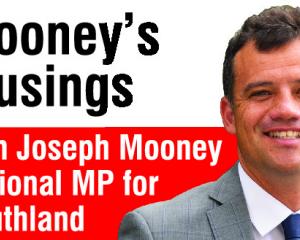
This week, Mr O’Malley travelled on his own from Balclutha to Christchurch, and then on to Picton to attend Hīkoi mō te Tiriti at Parliament.
The 76-year-old said he felt right attending the hīkoi and there was no doubt in his mind he made the correct decision in heading to Wellington.
He was brought up in Styx, in deepest Maniototo, and went to the local school, where there was not a Maori in sight.
He then went to school in Dunedin and back to the farm in Paerau until he decided in his early 20s there must be something else to do.
He got a law degree and practised law for many years.
Upon retirement, he enrolled in peace and conflict studies at the University of Otago.
At a lecture he was asked to think of a pacifist resistance and nothing came to mind.
A classmate talked of Parihaka, which Mr O’Malley knew nothing about.
Parihaka was an incident in Taranaki in 1881 when troops took over a settlement of peaceful Maori resistance and destroyed much of the village.
Mr O’Malley said he was embarrassed about not knowing of Parihaka and it sparked an interest, which culminated in his trip to Wellington this week.
"I’m Irish, Scottish Borders and English stock. But it was profound — just the sheer numbers of people up there. I drove up to Christchurch and then Picton and got there at 5.15 in the morning on the day," he said.
"The people were determined and recognised why they were there. They were accepting of everyone there and there were lots of different people of all races," Mr O’Malley said.
He said it was important to him to be at the hīkoi and got plenty of support from family and friends.
Mr O’Malley finally got to Parliament grounds when people in front of him were leaving, such was the size of the crowd.
The hīkoi crystallised the issues faced by Maori and the appalling treatment they had received, he said. Mana whenua had suffered in colonisation and that had to be addressed or things would just continue as they were, Mr O’Malley said.
Mr O’Malley admitted to not being the quickest of walkers but survived three hours on his feet despite a recent hip operation and a broken leg earlier this year.
"I’ve done a lot of reading and a lot of research into our early history, and the injustices that occurred then are being continued in our society today.
"So the inequality that’s there is real. And there’s no point in talking about people being equal until they have an equal base to start from," he said. — Additional reporting RNZ














